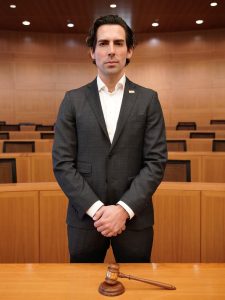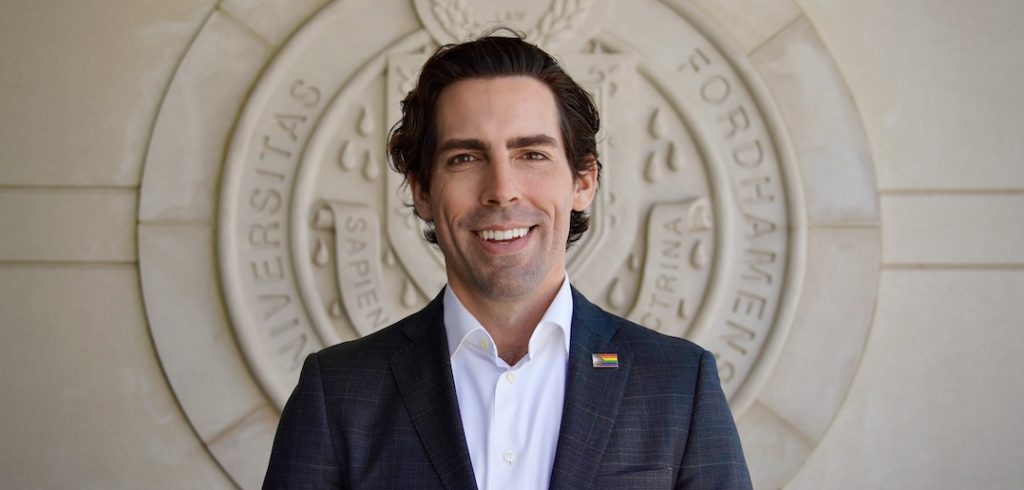“At Fordham, I learned not only how to interpret the law but also how to be a lawyer and a leader for everyone,” said Lanier.
His path to law school was unconventional. He studied theater and media communications during his undergraduate years and then moved from his native Texas to New York to pursue a job in public relations, but later realized this wasn’t the right career move. Lanier went on to found a nonprofit focused on LBGTQ+ health and wellness, where his community could safely exercise and “celebrate their queerness” together. After building the nonprofit, he realized he wanted to continue helping his community, but on a larger scale.
“The only logical next step for me was to go into law, where I can help effect change for not just one person, but millions of people,” he said.
Using the Law to Help Underserved Communities
Lanier’s first visit to Fordham Law took place in 2020, on the day the University shut down due to the pandemic. The building was empty, except for Lanier and a kind admissions counselor who gave him a tour, but that was all it took to convince him to enroll at Fordham.

Lanier served as a student leader, including as president of the law school’s Student Bar Association and as a New York State Pro Bono Scholar. In the latter role, he worked with the NYC Anti-Violence Project on cases for several clients, including a gay man who was seeking asylum in the U.S.
“The few times I was able to meet him, he was always very nervous and shy. But the minute the judge said ‘We are granting you asylum,’ his whole demeanor changed,” Lanier said. “During our post-asylum work, he has been so happy and joyful. You can see on his face that he feels safe. And to know that I was a small part of that huge change in his life is something that I will always remember.”
After graduation, Lanier will become an associate at international law firm Clifford Chance, where he will work in white-collar litigation and criminal defense.
Later in life, he’s thinking about serving in the political realm, where he can develop better legislation for the LGBTQ+ community, help formerly incarcerated people to return to society, and protect people from falling into homelessness, using the law as a tool.
“Will is older and more experienced than many law students,” said adjunct professor Jerry Goldfeder, who taught Lanier last year. “I’ve come to see a real sense of his maturity and centeredness that I have no doubt will enable him to be a successful attorney.”
Life Lessons From Illness
Lanier said his past personal challenges will also inform his career as a lawyer. He has lived with ulcerative colitis since he was 18 and was diagnosed with colon cancer when he was 28. Lanier said these challenges have taught him to be resilient, cherish life, and keep an open perspective.
“You never know what someone’s dealing with,” said Lanier, 37, who is now nine years in remission, engaged, and father to a shiba inu named Cash. “Meet everyone with compassion, assume positive intent when someone’s speaking to you, and always have an open heart.”

